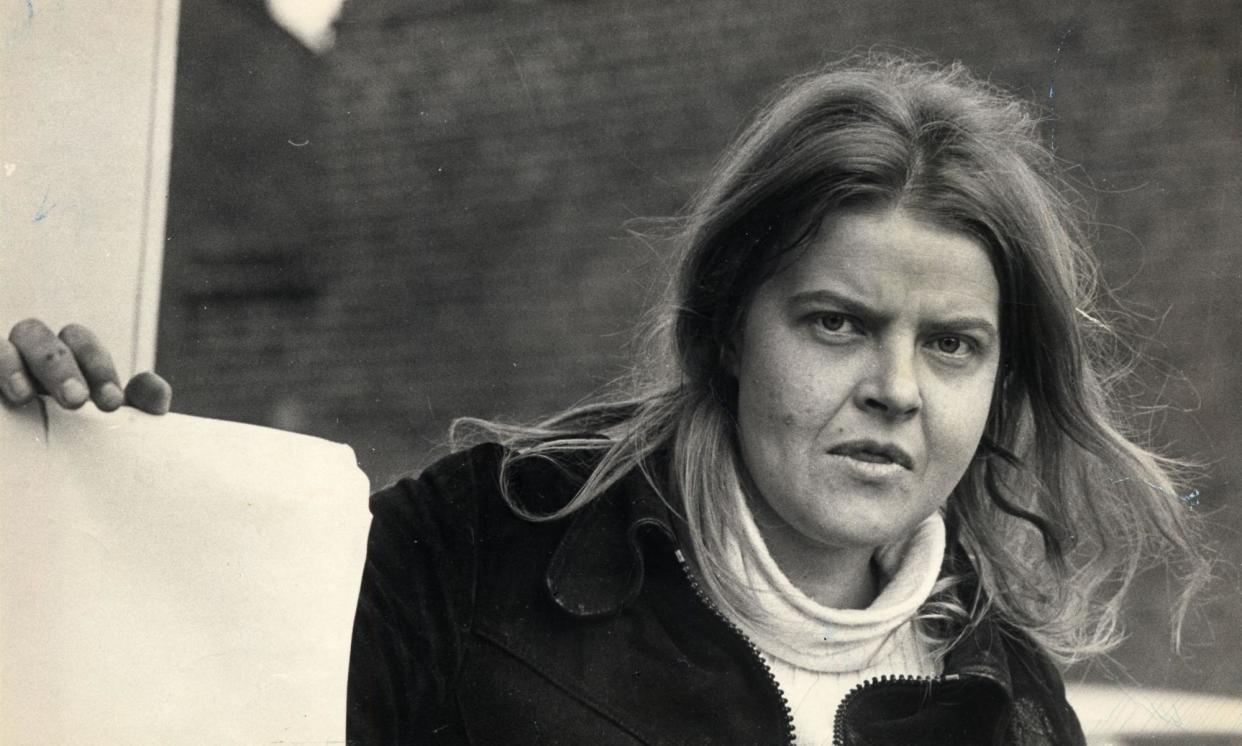Rose Dugdale, English debutante turned IRA bomb maker, dies aged 83

Rose Dugdale, who went from a background of wealth and privilege in England to become an IRA militant and bomb maker, has died in a Dublin nursing home aged 83.
Dugdale was presented as a 17-year-old to Queen Elizabeth as part of the 1958 summer debutante season. Years later, in 1974, Dugdale was given a nine-year prison sentence, in part for her role in the theft of 19 paintings from the home of a wealthy British politician.
The stolen art, belonging to Sir Alfred Beit, included works by Johannes Vermeer, Francisco Goya, Thomas Gainsborough and Peter Paul Rubens.
Beit was tied up and struck with revolvers as the IRA gang took the paintings from their frames. It was not clear whether the group sought to sell the paintings, which were later recovered, or use them as ransom for political demands.
During her trial, Dugdale declared herself “proudly and incorruptibly guilty” of offences against the state and described Britain as “the filthy enemy”.
She was also involved in an IRA hijack of a helicopter, which she used in an attempted bomb attack on a Royal Ulster Constabulary police station in Strabane, County Tyrone. The bombs failed to explode.
While in Limerick prison, Dugdale gave birth to a son, Ruairi, whose father was another IRA member, Eddie Gallagher.
In 1975, Gallagher and an accomplice kidnapped a Dutch businessman, Tiede Heremma, and demanded the release of Dugdale and other IRA prisoners.
The kidnappers were eventually found after a massive countrywide search and surrendered after a two-week siege. Herrema was released shaken but unharmed.
After her release from prison, Dugdale continued her involvement with both Sinn Féin and the IRA.
She and her new partner Jim “Mortar” Monaghan developed several lethal homemade explosive devices. Monaghan was one of three Irish republicans arrested and sentenced in Colombia for training Farc rebels.
The three, whose conviction was later quashed, escaped to Ireland shortly after being found guilty.
There has been renewed interest in Dugdale during the past year, with a new book, television series and a film, entitled Baltimore, a reference to a village in County Cork.
One of Dugdale’s first crimes was in 1973 when she was arrested along with her lover Walter Heaton after stealing paintings and silverware valued at £82,000 from her family’s home in Devon.
During cross-examination, her father, who appeared as a prosecution witness, told his daughter: “I love you, but I hate everything you stand for.” The couple were found guilty and she was given a two-year suspended sentence because the judge said the possibility of her reoffending was “extremely remote”.
Several Sinn Féin members have paid tribute to her.
Fiachra McGuinness, the son of the late former IRA commander and, later, deputy first minister Martin McGuinness, posted a photo of Dugdale on X, calling her a “republican legend”.


